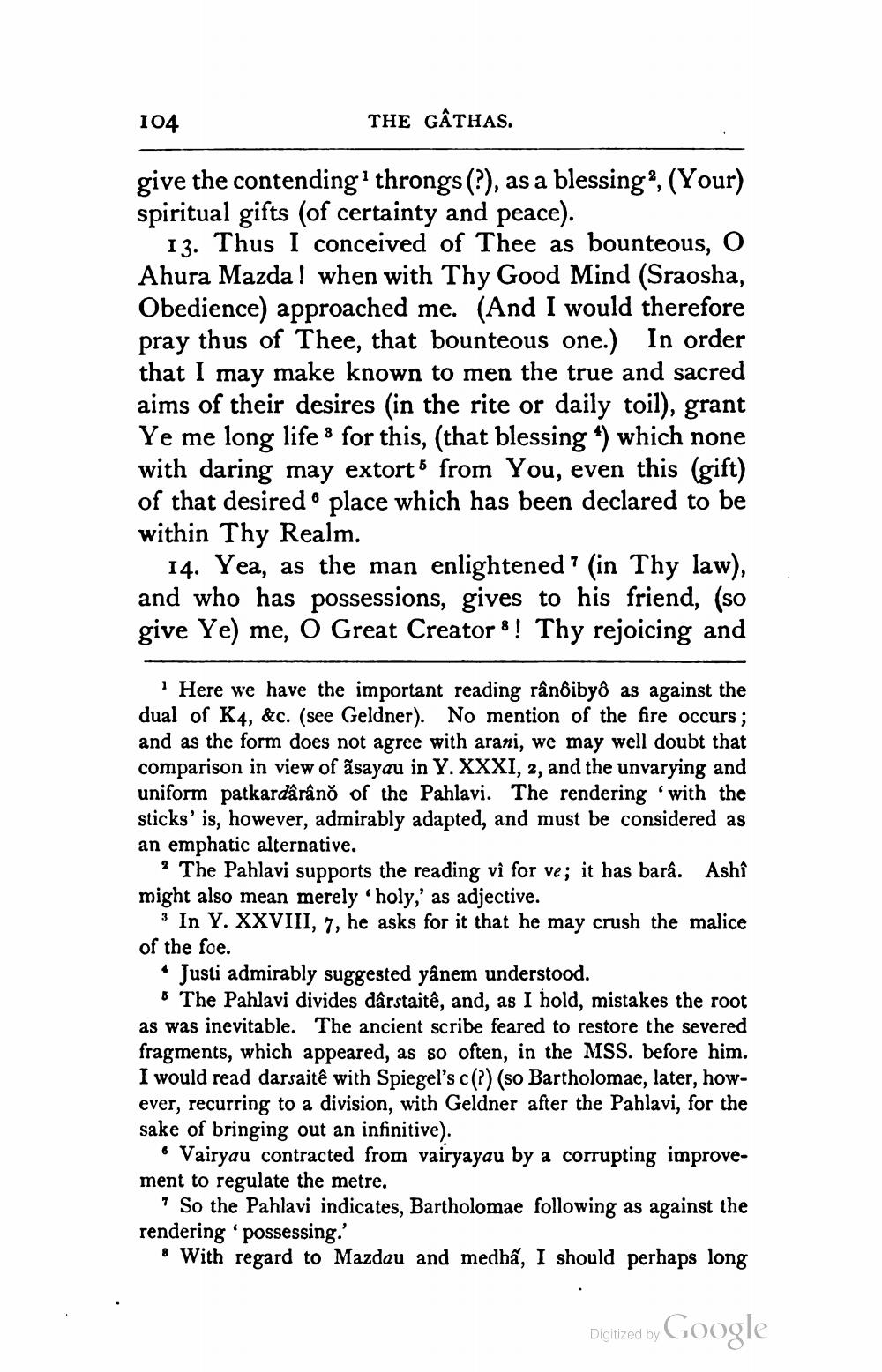________________
104
THE GÂTHAS.
give the contending throngs (?), as a blessing?, (Your) spiritual gifts (of certainty and peace).
13. Thus I conceived of Thee as bounteous, O Ahura Mazda! when with Thy Good Mind (Sraosha, Obedience) approached me. (And I would therefore pray thus of Thee, that bounteous one.) In order that I may make known to men the true and sacred aims of their desires (in the rite or daily toil), grant Ye me long life 8 for this, (that blessing 4) which none with daring may extort: from You, even this (gift) of that desired o place which has been declared to be within Thy Realm.
14. Yea, as the man enlightened? (in Thy law), and who has possessions, gives to his friend, (so give Ye) me, O Great Creator 8! Thy rejoicing and
Here we have the important reading rânõibyô as against the dual of K4, &c. (see Geldner). No mention of the fire occurs; and as the form does not agree with arani, we may well doubt that comparison in view of asayau in Y. XXXI, 2, and the unvarying and uniform patkardârâno of the Pahlavi. The rendering with the sticks' is, however, admirably adapted, and must be considered as an emphatic alternative.
* The Pahlavi supports the reading vî for ve; it has bara. Ashî might also mean merely .holy, as adjective.
* In Y. XXVIII, 7, he asks for it that he may crush the malice of the foe.
• Justi admirably suggested yânem understood.
• The Pahlavi divides dârstaitê, and, as I hold, mistakes the root as was inevitable. The ancient scribe feared to restore the severed fragments, which appeared, as so often, in the MSS. before him. I would read darsaitê with Spiegel's c(?) (so Bartholomae, later, however, recurring to a division, with Geldner after the Pahlavi, for the sake of bringing out an infinitive).
Vairyau contracted from vairyayau by a corrupting improvement to regulate the metre.
So the Pahlavi indicates, Bartholomae following as against the rendering 'possessing:
With regard to Mazdau and medhã, I should perhaps long
Digitized by
Digitized by Google




